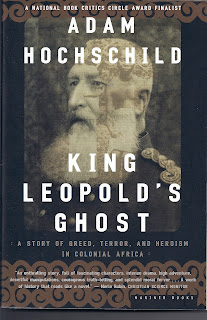Debra Ginsberg's
Waiting: The True Confessions of a Waitress (2000) is an amusing and, for those of us often found sitting at a table waiting for our meals, informative book. The title alone makes us conscious of the different meanings of the word
waiting.
I was particularly interested in Ginsberg's discussion of another word:
eatery. She writes, "Any restaurant that feels the need to instruct patrons that they are actually supposed to eat there is a little frightening.
Eatery also implies that the restaurant has absolutely no idea what category their menu falls into. (Come and eat here - we don't know what we're doing, but we know you're supposed to put it in you face. Hey, it's an eatery, right?)"
Her comments seem a bit extreme to me. I associate the term with restaurants that have a full menu and offer good food and lots of it. And why do menus have to fall into categories anyway? I've seen Chinese restaurants that serve Italian pasta and hot dogs. I don't see the problem, but Ginsberg does remind me that what restaurants choose to call themselves can create certain associations, both positive and negative, in the minds of potential patrons. For example:
bistro - To me, this word suggests a small, out-of-the way place that serves Yuppie Chow and not much else. I usually avoid bistros, even though I know my bias is often, if not usually, wrong.
cafe - I think of a small restaurant that specializes in coffee and tea, but serves donuts and small sandwiches in addition to those beverages. Again, I am probably wrong as often as I am right.
diner - A dictionary defines a diner as "an inexpensive restaurant with a long counter and booths, shaped like or built from a railroad car." If you want a quick, cheap, basic meal, a diner is the place to go.
grill - The word suggests steaks, eggs and other kinds of foods prepared on a grill. We most often see the word in the phrase "bar and grill," which would seem to indicate where their priorities lie. I am more likely to stop at a place that calls itself a "grill and bar."
bar, tavern - We usually associate these words with drinking establishments, although many of them serve excellent meals. In fact, one of the best restaurants in my area is a tavern. My wife and I go there on special occasions. Most of the time, however, we don't even think about bars and taverns when we are looking for a place to eat.
pub - When I toured Great Britain and Ireland in 2005, I noticed there were Chinese restaurants, Italian restaurants, Thai restaurants, etc., but no Irish, Scottish, Welsh or English restaurants. If you wanted local cooking, you went to a pub. There seem to be more pubs in the U.S. than there used to be, and the food in these places is usually pretty good.
deli - This word says
sandwiches to me.
buffet - Some people associate the word with obese people and anyone who can't get enough to eat at restaurants where they have to order off a menu. Yet buffet restaurants and cafeterias are also popular with senior citizens, for whatever reason. Many people, I'm convinced, prefer Chinese buffets because they like Chinese food but don't know how to order what they want off a menu. I believe that's why there are relatively few sit-down Asian restaurants. I like buffets because, as a diabetic, I can design my plate to fit my diet, taking less meat and potatoes and more fruits and vegetables than one can get at most restaurants. The challenge is to stop eating when I know I've had enough.
If I were starting my own restaurant, I think I would just call it a restaurant to avoid the negative associations so many people have with eateries, diners, buffets, etc.
 These two major versions of the English language (Australians and others have their own) have been in competition with each other almost from the time the original 13 colonies were established. Bill Bryson notes in his book The Mother Tongue that Samuel Johnson (1709-1784) criticized American usage of words like glee, jeopardy, smolder and antagonize. What Johnson failed to realize is that these words had actually originated in England but had, by the 18th century, fallen out of favor there, while Americans retained them.
These two major versions of the English language (Australians and others have their own) have been in competition with each other almost from the time the original 13 colonies were established. Bill Bryson notes in his book The Mother Tongue that Samuel Johnson (1709-1784) criticized American usage of words like glee, jeopardy, smolder and antagonize. What Johnson failed to realize is that these words had actually originated in England but had, by the 18th century, fallen out of favor there, while Americans retained them.
















